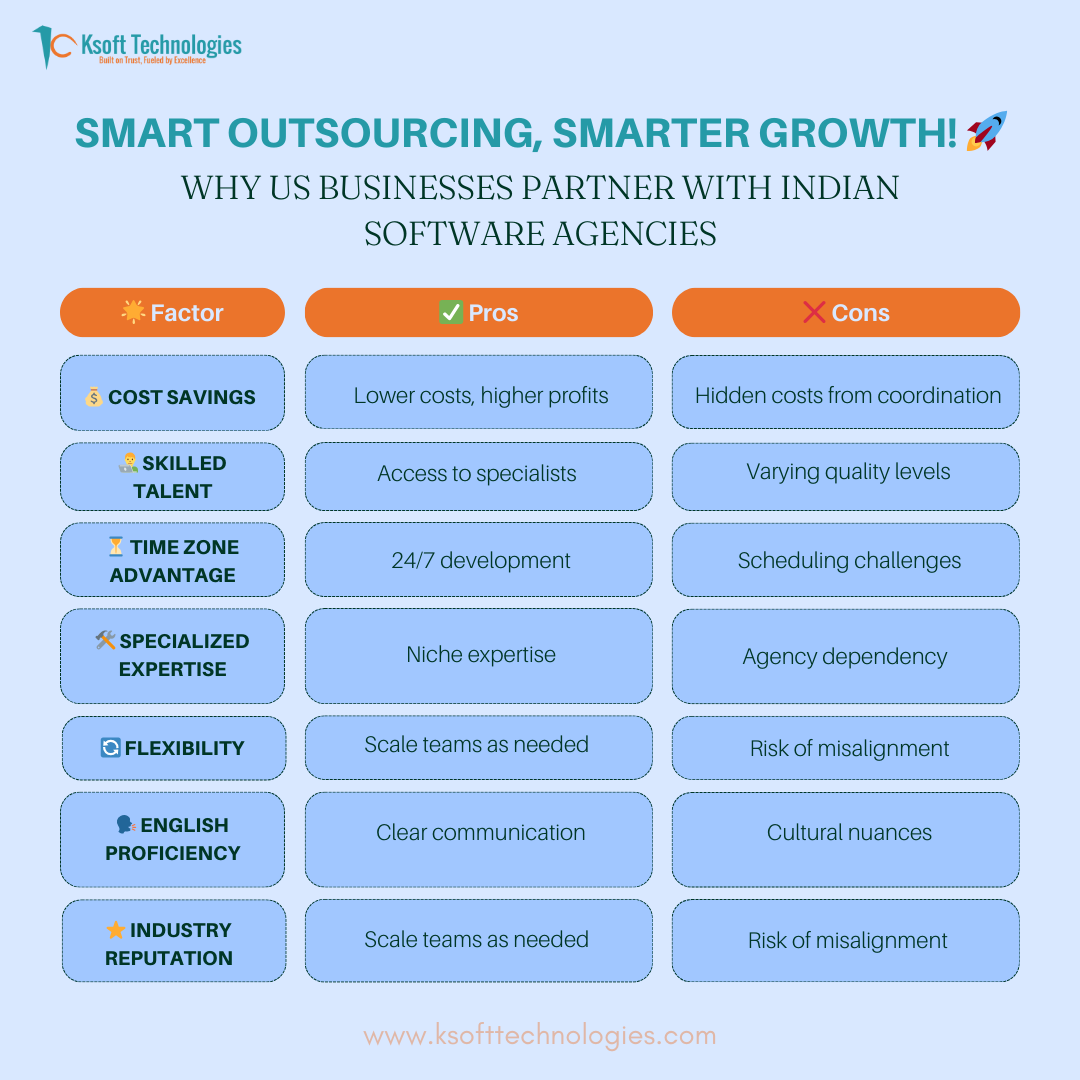

In today’s fast-paced digital world, businesses in the United States are always on the lookout for innovative ways to scale, optimize costs, and stay ahead of the competition. Software development plays a crucial role in this transformation, but hiring in-house developers can be costly and resource-intensive. That’s why outsourcing software development to India has become a game-changing strategy for companies looking for quality, affordability, and expertise under one roof.
India’s booming IT sector has positioned itself as a global leader in software development, offering top-tier talent, cutting-edge technology solutions, and flexible engagement models that cater to businesses of all sizes. From tech startups to Fortune 500 enterprises, companies are leveraging Indian agencies to bring their ideas to life. However, outsourcing comes with its own set of challenges, and businesses must navigate communication gaps, time zone differences, and quality control issues to maximize their investment.
In this blog, we explore why US businesses prefer Indian software development agencies, the key benefits they gain, and the potential risks to be aware of. If you’re considering outsourcing, this guide will help you make an informed decision.

One of the biggest reasons why US companies turn to India for software development is cost savings. Hiring developers in the US comes with high salaries, benefits, and overhead costs. In contrast, Indian agencies provide top-notch development services at a significantly lower price due to lower living costs and wage structures. The cost savings allow businesses to reinvest in growth, marketing, or research and development.
However, while affordability is a major perk, companies must ensure that cost-cutting doesn’t come at the expense of quality. Some firms may offer low prices but compromise on software standards, leading to rework, delays, and additional expenses in the long run. This is why choosing the right outsourcing partner is crucial.
India has one of the largest talent pools of IT professionals in the world. Every year, thousands of highly skilled engineers graduate with expertise in artificial intelligence, blockchain, cloud computing, cybersecurity, and full-stack development. This means businesses can easily find specialists in niche fields without spending months on recruitment.
Indian agencies also provide dedicated teams that are customized for specific projects, making it easier to find the right mix of expertise. However, businesses must be mindful of the varying quality of developers. Not all agencies uphold the same standards, so companies must conduct thorough vetting, check reviews, and request case studies before committing to an outsourcing partner.
The time zone difference between India and the US (ranging from 9.5 to 13.5 hours) is often seen as a challenge. However, smart businesses use this difference to their advantage by ensuring continuous development cycles. While US teams rest, their Indian counterparts continue working, speeding up project completion and accelerating go-to-market timelines.
This 24/7 development cycle enhances productivity and ensures businesses can meet tight deadlines. However, without clear communication protocols and structured workflows, time zone gaps can lead to misalignment, delayed responses, and inefficient collaboration. Companies should establish regular check-ins and utilize project management tools like Jira, Slack, or Zoom to keep everyone in sync.
Indian software agencies are not just about coding—they are innovation powerhouses. With expertise in artificial intelligence, machine learning, Internet of Things (IoT), cloud computing, and robotic process automation (RPA), Indian developers are helping businesses future-proof their operations.
Many Indian agencies invest in continuous learning and R&D to stay ahead of tech trends, ensuring that clients get the most up-to-date solutions. However, businesses that outsource specialized work should be prepared for long-term collaborations, as transitioning complex projects back in-house may require additional training and adaptation.
Another key benefit of outsourcing to India is flexibility. Businesses can scale development teams up or down based on project requirements without the commitment of long-term hiring. Indian agencies offer engagement models such as dedicated teams, hourly contracts, and full-scale development partnerships, making it easier for companies to manage fluctuating workloads.
While this scalability is beneficial, managing remote teams across different time zones can be challenging. Clear documentation, structured onboarding, and strong project management practices help ensure smooth collaboration and alignment with business goals.

At KSoft Technologies, we specialize in providing comprehensive digital solutions that help businesses navigate the modern digital landscape with ease. Our approach focuses on empowering businesses with automation, intelligent insights, and seamless integration to enhance efficiency and scalability.
Our Expertise in Business Automation and Digital Solutions:
One major advantage India has over other outsourcing destinations is its English-speaking workforce. With English being the primary language for education and business, communication barriers are minimal. Indian developers are also well-versed in Western business practices, making it easier to collaborate.
However, cultural differences in work styles, communication preferences, and time zone challenges can still lead to misunderstandings. To mitigate this, businesses should establish clear guidelines, use structured reporting methods, and maintain open communication channels to ensure smooth collaboration.
India has been a trusted IT outsourcing hub for decades, with Fortune 500 companies relying on its services for mission-critical projects. The country boasts a strong IT infrastructure, government-backed policies that encourage foreign investment, and a reputation for delivering high-quality tech solutions at scale.
Due to this demand, top-tier Indian agencies often have busy schedules, meaning businesses may need to book services well in advance. To ensure a seamless partnership, companies should conduct thorough research, request case studies, and verify credentials before committing to an outsourcing agreement.
While outsourcing to India offers significant advantages, businesses should consider the following key factors to maximize success:
Outsourcing software development to India is not just about reducing costs—it’s about accessing world-class talent, leveraging time zone advantages, and building innovative, scalable solutions. While challenges such as communication gaps and vendor reliability exist, choosing the right outsourcing partner can make all the difference.
With a well-planned strategy, businesses can harness the power of Indian software agencies to drive growth, increase efficiency, and stay ahead in an increasingly competitive market. If you’re ready to explore outsourcing opportunities, India remains one of the best destinations to take your business to the next level.